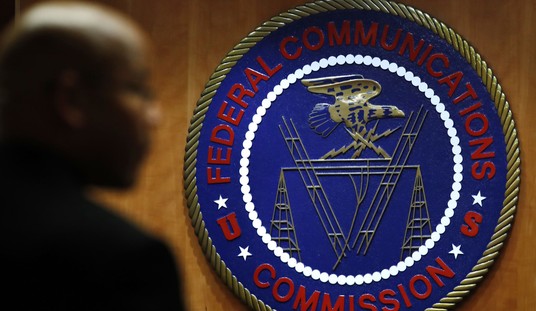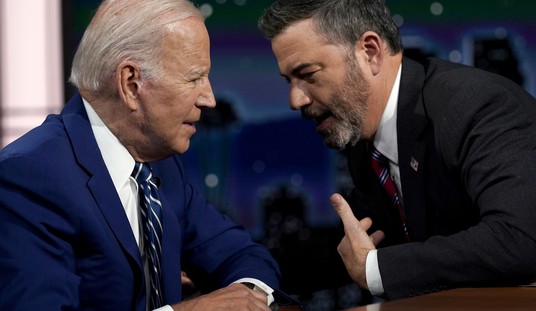We’re never going to be done with this g-ddamned pandemic. Ever.
Today’s Groundhog Day, right? Well, let me quote the viral forecast: “It’s gonna be cold, it’s gonna be gray, and it’s gonna last you for the rest of your life.”
Because I’m stupid, it didn’t automatically occur to me that a mutant strain of the virus that’s capable of evading antibodies produced by a first-gen version of a vaccine is also capable of evading antibodies produced by a first-gen version of the virus itself. If you were infected with common coronavirus a few months ago and got over it, there’s no logical reason why you’d necessarily be protected from infection by a new strain that’s evolved sufficiently that your body’s immune system no longer “recognizes” it. Which is exactly what’s happening in South Africa, according to Fauci. People who had COVID 1.0 are getting COVID 2.0 thanks to the variant that’s emerged there. Watch a few minutes here.
It’s not just South Africa where people are apparently being reinfected. Manaus, a city in Brazil, was devastated by COVID last year. The reward for enduring a ferocious outbreak is herd immunity among the survivors — unless the virus mutates to the point where it’s effectively once again a novel pathogen, in which case another ferocious outbreak is on tap. That’s what Manaus seems to be facing now:
Even in a year of horrendous suffering, what is unfolding in Brazil stands out. In the rainforest city of Manaus, home to 2 million people, bodies are reportedly being dropped into mass graves as quickly as they can be dug. Hospitals have run out of oxygen, and people with potentially treatable cases of COVID-19 are dying of asphyxia. This nature and scale of mortality have not been seen since the first months of the pandemic…
Data seemed to support the idea that herd immunity in Manaus was near. In Science this month, researchers mapped the virus’s takeover last year: In April, blood tests found that 4.8 percent of the city’s population had antibodies to SARS-CoV-2. By June, the number was up to 52.5 percent. Since people who get infected do not always test positive for antibodies, the researchers estimated that by June about two-thirds of the city had been infected. By November, the estimate was about 76 percent. In The Lancet this week, a team of Brazilian researchers noted that even if these estimates were off by a large margin, infection on this scale “should confer important population immunity to avoid a larger outbreak.” Indeed, it seemed to. The city was able to largely reopen and remain open throughout its winter with low levels of COVID-19 cases.
Either scientists heavily overestimated the share of the population that had gained immunity from the initial outbreak or the new Brazilian variant is burning through people who had recovered from common COVID. Best-case scenario for us: We may need vaccine booster shots several times a year as new strains pop up here or abroad and begin spreading among the population, including among people who’ve had the disease before. (Moderna is already developing a booster for the South African variant and Pfizer is “laying the groundwork” to do so if their current vaccine ends up struggling against that strain.) Worst-case scenario: A super-contagious strain emerges and starts tearing through America at lightning speed while pharma scrambles to develop a booster and get it distributed, leaving us back at square one on herd immunity.
We may not need a “permanent” vaccine infrastructure to get this done, but a short-term mobilization after which everything’s normal again circa September increasingly seems like wishful thinking.
In fact, the Times reports today that the very contagious British strain of the virus may be evolving to resist the current vaccines. Pfizer and Moderna reported recently that they believe their products are just as effective against the current British variant as they are against common COVID. But what about the “new” British variant?
Scientists suspect that the B.1.351 [South African] variant’s partial escape from vaccines is largely thanks to a single mutation, called E484K. Experiments indicate that the E484K mutation makes it harder for antibodies to grab onto the virus and prevent it from entering cells.
Now it turns out that some B.1.1.7 coronaviruses in Britain also have the E484K mutation…
[I]n a report posted online Tuesday, Rajiv Gupta, a virologist at the University of Cambridge, and his colleagues reported an experiment they ran to address exactly this question. They combined the E484K mutation with other key mutations found in the B.1.1.7 variant, the one initially found in Britain. The addition of the E484K mutation made it difficult for antibodies to block the viruses. The researchers wrote that they “observed a significant loss of neutralizing activity.”
If you liked British super-corona, you’ll love British super-super-corona. See now why Fauci and the CDC have taken to encouraging people to double-mask? It’s not because Fauci’s a killjoy who won’t rest until we’re all walking around in moon suits. It’s because the foreign strains are already circulating here and it seems unlikely we’ll get a meaningful number of people vaccinated before they’ve done a ton of damage. If super-corona spreads more easily than corona, the obvious thing to do is to add extra filtering to your airways to try to keep from inhaling it.
I’ll leave you with a hopeful note from former FDA chief Scott Gottlieb, who thinks that SARS-CoV-2 mutates slowly enough that we can stay ahead of it with an aggressive vaccination regime. Importantly, he notes, although the South African and Brazilian strains seem capable of reinfecting people, the jury’s still out on whether they’re more contagious than common COVID. The British variant does appear to have that advantage per the fact that it’s quickly become the dominant strain in the UK but it may be that the other ominous strains don’t spread quite as rapidly. They’re just a bit harder for common antibodies to cope with. Exit question: Why is it reportedly going to take the FDA “weeks” to decide whether Moderna can fill its vaccine vials with 15 doses instead of 10, as it wants to do? That’s a 50 percent boost in production instantly. And time is of the essence.
"I think that we are going to be able to keep up with this," @ScottGottliebMD says. He adds that since the coronavirus does not mutate as quickly as the flu, fighting new strains will be easier. https://t.co/UJx8hEHqZy pic.twitter.com/1WNuffrzvf
— CNBC (@CNBC) February 2, 2021








Join the conversation as a VIP Member